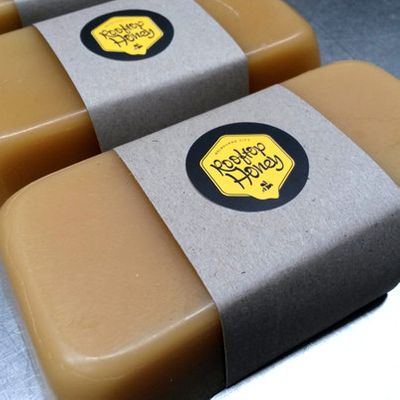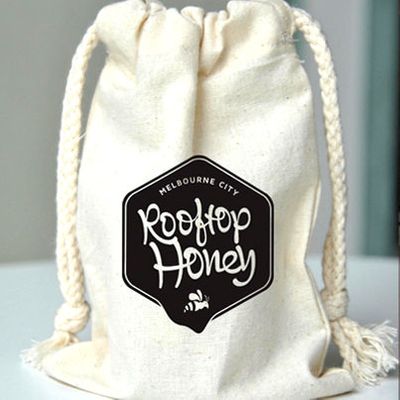Rooftop Honey
Beeswax from our local Melbourne Bees
Also found in:
Beeswax from our local Melbourne Bees - Rooftop Honey Melbourne Read more
Product Description
Beeswax from our local Melbourne Bees
Beeswax from our local Melbourne Bees
Approximately 200g
A little about Beeswax
The wax is formed by worker bees, which secrete it from eight wax-producing mirror glands on the inner sides of their abdominal segments. Honey bees use the beeswax to build honeycomb cells in which their young are raised with honey and pollen cells being capped for storage.
To produce their wax, bees must consume 4kg of honey to make 450g of beeswax. It's pretty special!
When Rooftop Honey Melbourne extract honey, they cut off the wax caps from each honeycomb cell with an uncapping knife. Its color varies from nearly white to brownish, but most often a shade of yellow.
Rooftop Honey Melbourne melt it, filter it through simple cloth and pour.
Includes: Printed drawstring calico tote (19cm x 12cm)
A bit about Rooftop Honey Melbourne
Rooftop Honey Melbourne have already helped ‘re-home’ 70 swarms of honeybee colonies from swarms caught by Rooftop Honey Melbourne and from unwanted colonies saved from extermination during the Spring and Summer.
If it wasn’t for this, these colonies of honeybees may not have survived. Looking to the future, as Rooftop Honey expand on concepts of growing food in our cities & making them cooler, greener & more sustainable - It is vital to protect honey bees and include them in our cities and sprawling urban landscapes.
Rooftop Honey Melbourne Success
The main reason for the success of urban bees is the variety of flora growing in the city compared with to what is now present in much of the countryside which often has just one crop dominating an entire area. When that has finished blossoming, there is no more nectar for the local bees. In Paris, after analyzing the honey it was discovered that it contained more than 250 different pollens. In the countryside there can be as few as only 15 or 20 different pollens.
Rooftop Honey Melbourne place their hives utilising unused roofs, balconies & gardens. Melbourne now joins the likes of Paris, London, Toronto, San Francisco New York, Hong Kong and many others where urban beekeeping is thriving. The community benefits by some true ‘local’ produce – a delicious tasting honey which is unique to each site, with less actual food miles plus help green our City of Melbourne.



.jpg)


.jpg)







